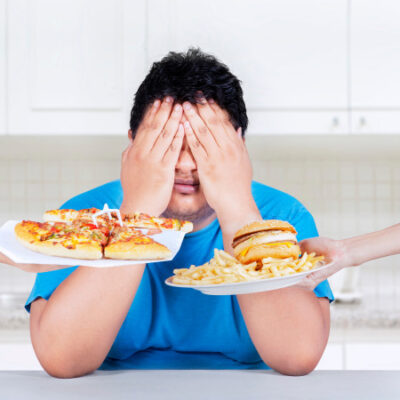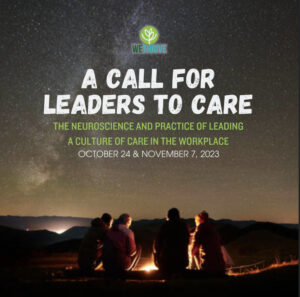In We Thrive, we work with people becoming their best selves by working with different aspects of who they are. There are the big-picture things: our sense of purpose, for example, which in Dr. Gabrielle Pfund’s research is composed of things such as how our future plans match our interests, how engaging we feel life is as a whole, and so on (Psychology Today, 2023). But there are also the big things when you zoom into that picture: the finer details of life, emerging from moment to moment, which compose the movements towards what we want life to be. These include the patterns of our thoughts, emotions, and behaviors, but also the things which give us the energy to, well, move. Specifically, we get this energy through food, “a fundamental human need that influences both physiological and emotional states” (Hamburg, Finkenauer, & Schuengel, 2014). Nutrition looks different from person to person, but generally speaking, the task of ascertaining life’s movement can be more difficult than it has to be when our bodies aren’t getting the food and drink it needs (MSD Manual, 2023). And as we’ve probably all experienced, those aforementioned patterns of thought, emotion, and behavior can lead us into patterns of eating that can deprive rather than enrich us. In this article, we will talk a bit about what such a pattern of eating is; how we might end up moving in this direction; and what we can do to direct, rather than be directed by, our eating habits.
What is “emotional eating”?
Eating is, as nutritionist Amelia R. Sherry puts it, “an intrinsically emotional experience” (Psychology Today, 2022). Hamburg, Finkenauer, & Schuengel expressed this intuition in concrete terms: “eating behavior goes beyond nutrition and alleviating hunger; family, friends, and cultural heritage shape individual food preferences” (Hamburg, Finkenauer, & Schuengel, 2014). All of life, both the pleasant and the unpleasant, is threaded with the experience of eating. So the term “emotional eating”, while widely used, does not necessarily give us the clearest idea, and might also give the wrong impression that eating in response to our feelings is necessarily a bad thing. Choosing to eat can be a perfectly reasonable way of grounding us, whether by supplementing our present positive emotional states, reliving a positive memory associated with certain foods, or dealing with the occasional difficulty (Rachael Hartley Nutrition, 2016).
The difference between “good” or “bad” emotional eating is in the word “choice”. Whether responding to our emotions by eating deprives or nourishes us depends on the intentions we have (or haven’t) set when we eat. Besides determining how nutrient-dense our diets are, how do we clarify our intentions with eating? Here are some helpful guide questions:
- How aware are we of the reasons why we choose a particular food at a particular time?
- Are we eating in a way that aligns with a particular goal we have, such as a health goal?
- When faced with stressful situations, have we considered whether there may be better ways of coping or resolving these situations other than with food?
- To what extent do we actually savor or enjoy the food we are eating, when we do choose to eat at that moment?
- As a whole, does our experience of eating delight us, or leave us with a lingering sense that something is not quite right?
What moves us towards “eating emotionally”?
“Emotional eating” is also known by at least two other names: “stress eating”, and “comfort eating”. These terms might be preferable, because it gives a better sense of the context in which these patterns of eating emerge. At the minimum, when people use the term “emotional eating”, they are generally referring to food intake as a means of grounding us when we feel overwhelmed, disrupted, or out-of-balance — in other words, eating as self-soothing (Psychology Today, 2023). If, while going through the guide questions, you realize that the intent of your emotional eating appears to be mostly about self-soothing, then you may be emotional eating in a way that might not be serving your best interests long-term. But this happens to almost everyone, and it is not necessarily about willpower. The research of Dr. Tatjana Van Strien found at least three determinants for emotional eating (van Strien, 2018):
- Poor interoceptive awareness. This means a person has difficulty distinguishing feelings of hunger and satiety, which can lead to difficulties with determining whether one has eaten too little or too much. For example, this can be due to dietary factors such as regularly eating foods that are high in sugar, which can exacerbate hunger because of the rapid increases in blood glucose (Penaforte et al., 2013).
- Poor emotion regulation strategies. This means, for example, that a person becomes over-reliant on a particular coping mechanism (in this case, food) to deal with stressful situations. It can also mean that emotional eating becomes the result of an inappropriate coping mechanism, such as when avoidance of stressful situations ultimately leads to more of the stress occurring later on, making one more likely to rely on emotional eating.
- Disruption of the hypothalamic-pituitary-adrenal (HPA) axis. Among other things, the HPA axis is responsible for regulating appetite. Under normal circumstances, the stress response would be a loss of appetite, but due to various factors (e.g. incredibly stressful experiences, childhood trauma, abuse, or other underlying health conditions affecting the HPA axis), this is reversed and the stress response instead leads to increased appetite.
Keeping these three in mind, we can reflect on a few more questions:
- What might be causing your urge to eat at a particular time? Is it because of what or how you may be used to eating?
- What difficult or stressful situations are you currently experiencing that may be better served by something other than food?
- Aside from providing nutrition or sustenance, in what ways has food been present in your life growing up? Did you have an abundance of food or a scarcity of it?
- When you think of food, what memories are usually associated with it? Were there certain negative and possibly intense experiences in your life which food used to help you get through?
How do we direct our eating?
Eating plays a vital role, not just in the maintenance of regular bodily functioning, but in our journey towards living a purpose-driven life. But eating can either deprive us or enrich us with the energies, both physiological and psychological, necessary to live out such a life. So how do we eat in a way that is more enriching? Depending on your answers to the questions mentioned earlier, co-authors Dr. Gia Marson and Dr. Danielle Keenan-Miller offers some ideas for how best you can set the direction for the way food moves your life (Psychology Today, 2023):
- Acceptance. This means becoming more accepting of your body and how it reacts to food. This means less judgment, which often leads to guilt and shame, and more kindness, which can lead you to a better sense of how the food actually feels for you.
- Awareness. This means tuning into the emotional nature of eating and noticing what kinds of emotions emerge alongside the desire to eat.
- Avoid reacting impulsively. This means when difficult and negative emotions emerge, as they do in emotional eating, we take a pause rather than immediately reaching out to food as we have habituated ourselves. This will give you some room to consider how else you might be able to respond to these emotions.
For mental health support services, email us at resilientteams@wethrivewellbeing.com or sign-up for sessions with our mental health clinicians.
References:
- https://www.psychologytoday.com/us/blog/fulfillment-at-any-age/202305/what-gives-your-life-a-sense-of-purpose
- https://www.msdmanuals.com/home/disorders-of-nutrition/overview-of-nutrition/overview-of-nutrition
- https://www.ncbi.nlm.nih.gov/pmc/articles/PMC3907771/
- https://www.psychologytoday.com/intl/blog/positive-food-parenting/202212/when-emotional-eating-can-be-normal-and-even-healthy
- https://www.rachaelhartleynutrition.com/blog/2016/11/emotional-eating-is-okay
- https://www.psychologytoday.com/us/blog/the-binge-eating-prevention-plan/202301/emotional-eating-is-all-about-emotions-or-is-it
- https://www.ncbi.nlm.nih.gov/pmc/articles/PMC5918520/




